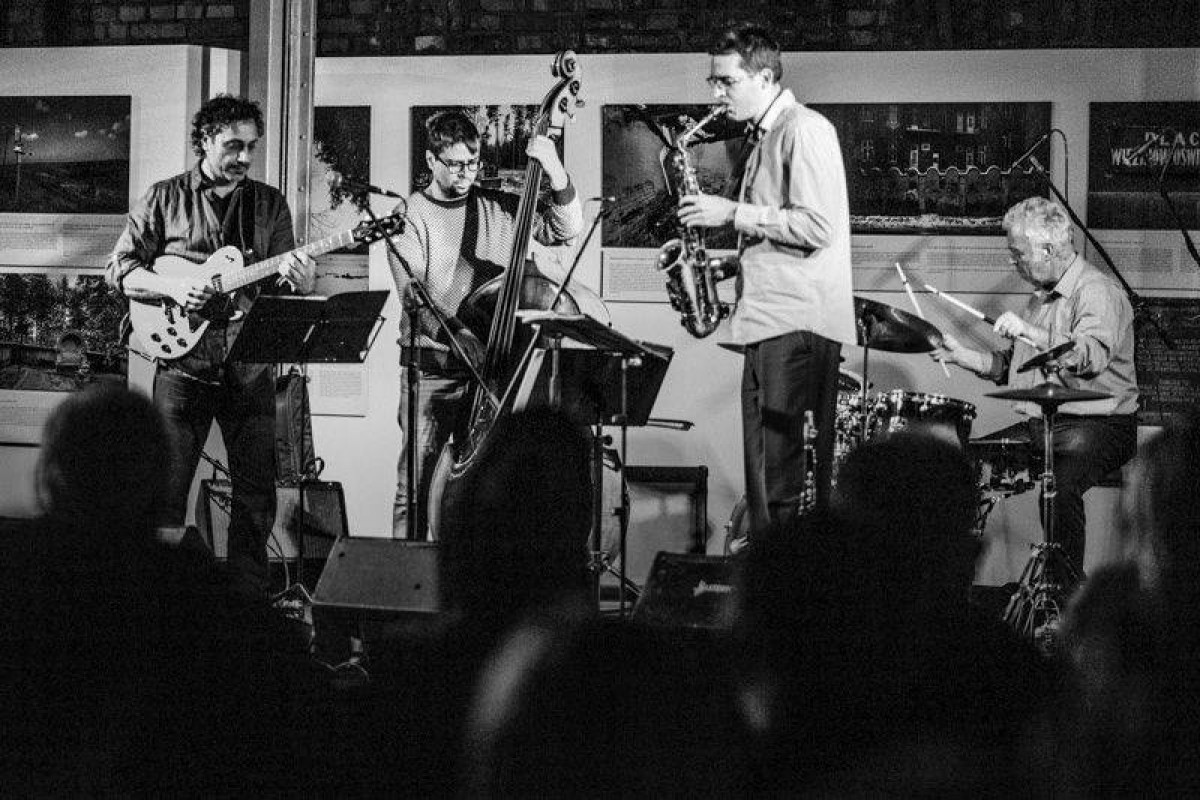
Párniczky Quartet: Bartók electrified
- András Párniczky - guitar
- Péter Bede - saxophone, tárogató
- Ernő Hock - double bass
- István Baló - drums
András Párniczky founded the group Nigun in 2001. The band scored great success with performing in many prestigious music festivals as the Athens Technopolis Jazz Festival, Bravo Art Festival Brussels, Klezmore Fest Vienna, Jazz Festival Brno, Jazz Festival Bansko, the MOL Budapest Jazz Festival, Sziget Festival, Mediawave or the Summer Jewish Festival (Budapest), as well as various events all over Europe and the United States (New York, Washington D.C). Nigun often worked together with guest musicians, such as John Zorn, Don Byron, Frank London, Matt Darriau (Klezmatics), Steven Bernstein (Sex Mob), Daniel Zamir, Mihály Dresch, Miklós Lukács or Dániel Szabó. The Párniczky Quartet was formed by the members of Nigun with the aim to perform the repertoire of Bartók electrified.
Bartók was an outstanding musician and composer. He was fascinated not just by folk music, but jazz and musical improvisation as well. Bartók himself was very interested in improvisation as a musical form. A testimony to this interest was Eight Improvisation on Hungarian Peasant Songs. He had also composed Contrasts to Benny Goodman, the most successful jazz musician of the Swing Era. With a common affinity to these genres András Párniczky created Bartók electrified, a repertoire based on Bartók’s shorter pieces like Microcosmos, Ten Easy Pieces for Piano or Contrasts for Violin, Clarinet and Piano. Consequently the music of the quartet is simultaneously complex and emotional. Bartók's musical genius appears while the band maintains their own recognisable sound.
“Musical improvisation: Is a language, capable of expressing the various layers of human existence demanding that every musician rise to a certain level of creativity. Improvisation, like the music of Bartók, is confessional art, which in essence in itself shows similarities. Bartók had realised this in his time.” György Szabados